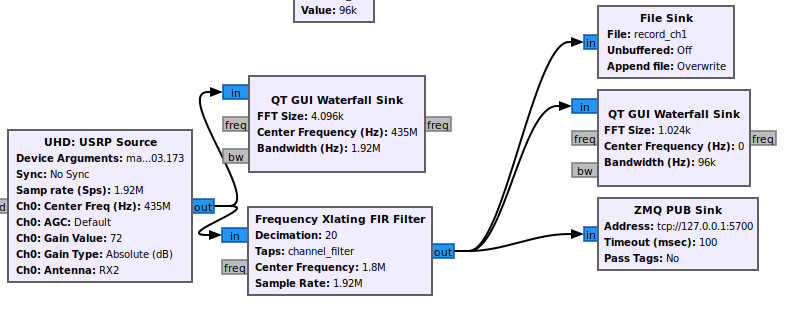In my company, we are using a GNURadio script with a PlutoSDR to receive packets coming from a transmitter located very far away. The receive power is really weak, our antenna is receiving something that is below -140 dBm.
We tried to replace the PlutoSDR with a USRP N310 because it has better performances.
We found out that with the same GNURadio script as the PlutoSDR, but with the USRP N310, the received signal strength was way lower than with the PlutoSDR. Nothing except the SDR, changed in the reception chain.
So it seems that the RX gain of the USRP N310 is the problem here.
How can we increase the RX gain of the USRP N310 ?
Here are the RF parameters:
Sample rate: 1.92 MHz
Center Frequency: 435 MHz
Normalized gain: 1
Master clock rate 122.88 MHz
Here are the USRP and host PC parameters:
UHD version: UHD 4.2.0.HEAD-0-g46a70d85
FPGA version: HG
Host PC: Ubuntu 20.04
GNURadio host PC: v3.8.1.0
And below is the beginning of our GNURadio script:

Both SDR are using a chip coming from Analog Devices. The one inside the USRP N310 is obviously more powerfull than the one inside the PlutoSDR.
